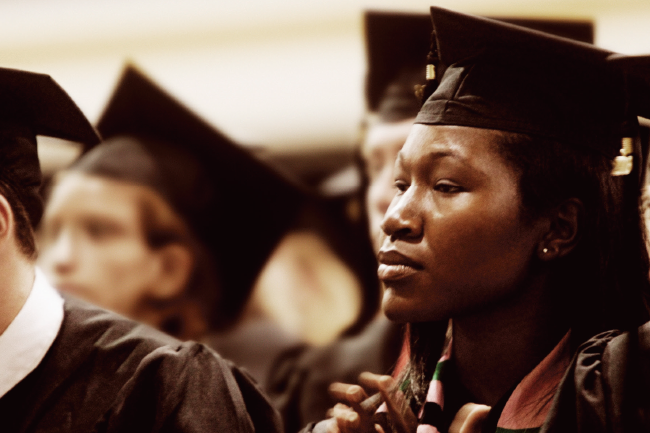Wits Business School (WBS) was quick to post the news about its alumna Mpumi Madisa on its website. Madisa, who holds a master’s in management (finance and investment) from WBS among her qualifications, will be the first-ever female CEO of the JSE-listed industrial group Bidvest. At the time of the announcement, in March 2019, there was no other woman CEO heading a Top 40 listed company in South Africa, which is why President Cyril Ramaphosa officially congratulated her.
Johannesburg-based WBS, which celebrated its 50th anniversary in 2018, is the graduate school of business administration for the University of Witwatersrand (Wits). It notes that it has ‘the highest number of graduating MBAs in Africa – over 6 800 MBA graduates so far – and the highest number of CEOs in our alumni, more than any other business school in Africa’.
The increasing focus on social impact, ethics and responsible leadership has, however, made measuring the success of the continent’s business schools more complex. Assessments now look beyond the statistics (such as the number of graduates moving into C-suite positions or the amount of financial profit they generate) towards more holistic markers. So when the Gordon Institute of Business Science (GIBS) at Pretoria University stated that its MBA graduates boosted their income by an average of 59% after completing the programme (which, it says, is on par with some top schools in China, Germany and the US), the school simultaneously pointed out that this is only a small part of a much bigger picture.
‘What matters immensely to us is the role that our students and alumni can play in building a vibrant, socially responsive economy that benefits not only the business sector but society at large,’ says GIBS dean Nicola Kleyn, who will step down at the end of her five-year contract in March 2020. Fellow academic Martin Butler, head of the MBA programme at the University of Stellenbosch Business School (USB), says: ‘I think the ultimate measure of success is asking alumni two years after graduation, “Would you have made the choice to do your MBA again if you knew what it would entail before starting?” If the answer is, “Yes, I would definitely do it again”, we have a successful programme.’
USB uses impact measures and tracks how students are progressing in what they want to achieve, says Butler. ‘This includes climbing the corporate ladder for some; making a social impact for others; and even spending time with the family. A common success measure is personal growth and this manifests in multiple different ways, depending on where students are in their personal journey.’
He adds that ‘the AACSB [Association to Advance Collegiate Schools of Business] accreditation in particular is strong on impact, and we have students who have received accolades or commendations for their impact’. The American AACSB accreditation is one of the top three international benchmarks for quality control of business schools – the others being the UK’s Association of MBAs (AMBA) and the European Foundation for Management Development’s Quality Improvement System. USB is among the elite group of African institutions with a ‘triple crown’ of all three top accreditations, together with the University of Cape Town Graduate School of Business (UCT GSB), Henley Business School Africa (based in Sandton, South Africa) and the American University in Cairo, Egypt.
When it comes to which of the continent’s business schools to select, students have to consider practicalities such as location, cost and what specific courses and electives it offers. ‘But for an objective assessment of quality, most students will turn to the accreditations to make sure they will get value for money,’ says Kutlwano Ramaboa, director of international relations at UCT GSB. ‘The three main global assessment bodies assess performance in a holistic way. Their assessment goes beyond just individual increases in salary. They take into account graduates’ contribution to society, value creation and entrepreneurship.’
This is crucial because, according to a study by the US-based Graduate Management Admission Council (GMAC), MBA students are becoming less motivated by money and more interested in creating social impact, gaining international exposure and being respected by their peers. They increasingly regard business as a powerful force for good and want to make a positive impact in the world through their work.
‘The new generation of students in Africa have different aims and attitudes from their predecessors,’ says the Association of African Business Schools (AABS), which, in 2018, launched the first African accreditation for business schools, specifically based on values relative to this continent. Echoing the findings of the GMAC, it adds that ‘many students are now less interested in careers in finance and consulting and more motivated by entrepreneurship, innovation and engagement with their community. There is also a steady shift towards students staying in Africa and there is a trend towards graduates taking up jobs and educational opportunities in their country or region of origin’.
According to the AABS, ‘Western solutions to the challenges of management and leadership are not, on their own, fit for purpose for modern Africa. There needs to be an awareness of global best practice, but Africa needs to develop its own concept of what the business school should be’.
The continent’s leading business schools have long adapted their curriculums to this thinking. In 2014, Rhodes Business School (RBS) in Makhanda, South Africa, began focusing on ethical leadership and sustainability in the African context. ‘Our 4E module – economy, ethics, ecology and equity – provides a context for integrated thinking,’ says Owen Skae, director of RBS. Other business schools have followed this approach and the AMBA has endorsed Rhodes’ MBA programme for several years running, which Skae finds particularly gratifying because of the school’s location – tucked away in the Eastern Cape, remote from the economic mainstream.
In the economic hub of Gauteng, meanwhile, WBS has designed its new MBA curriculum to reflect the changing business landscape in Africa, building it around five key themes (context in Africa; context in South Africa; sustainability; entrepreneurial action; and critical engagement). ‘Our teaching approach and the diverse nature of our classes leads to students developing a cultural sensitivity and also an appreciation of the value of diversity,’ according to Paul Alagidede, WBS academic director. ‘Our emphasis on group [syndicate] work means that the study process is conducted in a microcosm of all South African organisations, both private and public sector. Learning by doing is far more superior to mere learning in the classroom.’
Lyal White, dean of the continent’s newest addition, the Johannesburg Business School (JBS), believes the African MBA needs to be grounded in a pan-African context, with strong international networks, and that it should be geared for disruptors and entrepreneurs beyond the corporate climbers targeted by traditional programmes. Established in 2017 as part of the University of Johannesburg, the school will be launching its MBA programme in 2020. ‘The JBS, as a newcomer – and late-comer – in the business school and MBA space, has had to think and position itself very differently,‘ says White. ‘This applies not only to content and target market, but delivery and method of approaches or application. This is very much around the future of work and business, real-world application, the broader societal challenges and the role/impact of business and, of course, the African context.’
He explains that the MBA is geared towards ‘business owners, those entrepreneurs and family-run businesses requiring cutting-edge tools and insights to grow and scale their small and medium-sized businesses; as well as professionals working and consulting to small and medium-sized enterprises, seeking to integrate them into the broader value chain’.
White adds that through ‘dedicated mentorship, with an emphasis on personal interaction and high-impact practical learnings, we will equip students with critical skills that they can apply to their businesses immediately’. Henley Business School in Africa also strives to develop students with an experimental mindset – turning them into ‘critical, creative and imaginative thinkers and disruptors who are able to bring real and impactful change to their workplace environments’.
According to Jon Foster-Pedley, Henley’s dean and director in Africa, ‘we believe business schools have to be activists in the corporate world, switching people in the corporate world off autopilot so that they begin to use their skills and resources to build fairer businesses that contribute to flourishing societies and communities’. He notes the importance of decolonisation and addressing the feeling of inferiority.
‘Where I teach, all our MBA learning is assessed blindly, by external international moderators. The examiners don’t know whether they are assessing students from the UK, Africa, China or Europe,’ he writes in the Sunday Independent. ‘Students from Africa of course do just as well as everyone else. We have got all the intelligence we need. People need to start believing this and owning it.’
Home-grown talent, such as Bidvest’s Mpumi Madisa, lead the way in this and serve as testament to the relevance and quality of Africa’s business education.





